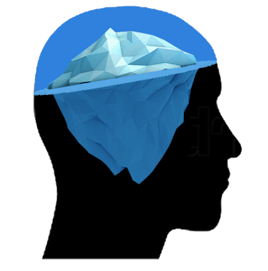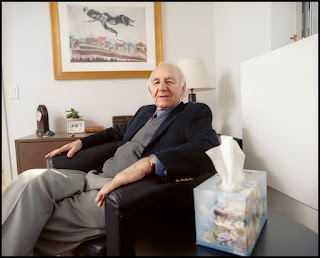Blog #4 : Research Proposal
Working or Tentative Title: Déjà Vu vs. The Unconcious Mind
Topic Description
I will explore the déjà vu phenomenon and its links to dreams and the unconscious mind. Déjà vu has been studied by psychologists for many years and clearly has to deal with the brain, specifically the temporal lobe which encloses memories. There are other elements to the déjà vu phenomenon that deal with the mind such as our dreams, our unconscious mind, and false memories that our mind has tricked us into believing we have experienced. Through studies and real-life experiences, it can be seen that déjà vu has ties to the mind and quite possibly could have a negative effect on us. Déjà vu has been linked to neurological and psychological disorders such as schizophrenia and anxiety, and could possibly even worsen due to déjà vu. To most people déjà vu is just a weird feeling that relates to something you have seen or done. For example, if you rake leaves today and a month later you play ice hockey and experience déjà vu. Playing hockey and raking leaves have a similar hand motion, so that feeling of déjà vu occurred because your mind realized that the similarities between those two events. While this is a factual theory, I personally believe that déjà vu goes deeper than ties to past memories. In ways such as increasing hyperfamiliarity through one’s dreams. This can affect one’s everyday behavior and can even cause persistent déjà vu which may take a toll on one’s mental health.
Research Question
How does the phenomenon of déjà vu relate to the unconscious mind? Does déjà vu negatively affect humans with certain neurological and psychological disorders, and could that experience of déjà vu be a warning sign? Does our memory of dreams play a role in déjà vu?
Theoretical Frame
As previously stated, déjà vu can be explained by similarities between two events that have occurred in your life. I want to bring up an experiment conducted by Anne Cleary, a cognitive psychologist at Colorado State University. Cleary and her research team created a virtual reality simulation and created different types of scenes such as a junkyard and a hedge garden. These scenes were spatially mapped to scenes that were previously witnessed by the participants in this experiment. After scavenging the different scenes, the participants were asked if they experienced any sort of déjà vu. After compiling their answers, Cleary and her team stated that “subjects were more likely to report déjà vu among scenes that spatially mapped onto earlier witnessed scenes” (Colorado State University). The participants felt as if they had experienced a certain scene already, but did not understand why they felt that way. This indicates a feeling of déjà vu and provides a good background of the phenomenon.
I want to move in further on the theory that dreams are related to the déjà vu phenomenon. In The Déjà Vu Experience, Alan S. Brown explains three different ways dreams and déjà vu are connected. The first one is that certain déjà vu experiences happen to duplicate events that occurred during a dream. He states that the reason for this is because “the sense of unreality that pervades the déjà vu experience makes it resemble a dream, leading individuals to logically assume that the strange sensation of familiarity originates from this state” (Brown 75). The second connection relates to the parts of dreams that we remember that may connect to stimuli we face when we are awake, causing our mind to trick us into thinking this experience already happened. The third connection is déjà vu occurring in the dream itself. Some individuals have stated that they experienced déjà vu in a dream and realized it as well. This theory can relate to the unconscious mind. Our unconscious mind holds unpleasant feelings such as anxiety, pain, and conflict. It can also hold our repressed feelings or hidden memories, and this in some form could be a déjà vu experience. While he didn’t come up with the term, Sigmund Freud made the term “unconscious” popular and went on to explain his theory on the unconscious mind while also giving his input on how it connects to the déjà vu phenomenon. He believes that since déjà vu is unconscious, “the content of the fantasy is blocked from awareness, but the sense of familiarity leaks through and results in the déjà vu experience” (Lampinen).
Case(s) or Examples
In one study of déjà vu regarding dreams, a group of participants were asked if they have ever experienced déjà vu and if they remember their dreams. The 10 participants who responded no to experiencing déjà vu, also responding no to remembering their dreams. Whereas, the 36 participants who reported that they have déjà vu experiences, also reported that they remember their dreams. This indicates a strong connection between déjà vu and dreams.
In The Psychology of Everyday Life, Sigmund Freud explains a case about a woman who experienced déjà vu and could not forget about it. This woman was visiting her school friends and walked into a garden where she experienced the feeling of déjà vu. However, she had never been there before. Before the visit, she knew that the girls she was visiting had an ill brother and when she saw him, she thought he was going to die. Her brother was ill as well a few months earlier. The case goes into specific details of what happened, but the conclusion that Freud came to was that the woman secretly wished her brother’s death. This thought was deeply rooted in her mind and repressed by her unconscious mind.
Working Bibliography
Brown A. S. A Review of the Déjà Vu Experience. Psychological bulletin. 2003;129(3):394-413. doi:10.1037/0033-2909.129.3.394
Brown, A. S. (2004). The Déjà Vu Experience. New York, NY: Psychology Press.
Colorado State University. "Déjà vu and feelings of prediction: They're just feelings: Researchers recreated deja vu in human subjects." ScienceDaily. ScienceDaily, 1 March 2018. <www.sciencedaily.com/releases/2018/03/180301125046.htm>.
Lampinen, J. M. (2002, May 13). What exactly is déjà vu? Retrieved February 26, 2021, from https://www.scientificamerican.com/article/what-exactly-is-dj-vu/
Soleil, V. (2013, December 26). Freud, Déjà vu and DREAMS: Games of the subconscious mind. Retrieved February 19, 2021, from https://www.learning-mind.com/deja-vu-the-games-of-subconscious-mind/

Comments
Post a Comment